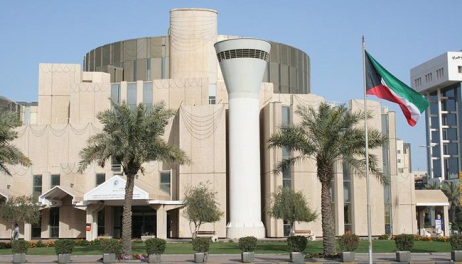He said, companies of Kuwait are showing interest in Baku White City project, where they plan to take a major part.
Urban Development Project Baku White City is conducted under the Decree of the President of Azerbaijan Ilham Aliyev on the approval of the "Plan of complex measures on improvement of ecological situation in Azerbaijan in 2006-2010".
"Kuwait is one of the main oil-extracting countries of the world. However unlike Azerbaijan the territory of the country is generally unsuitable for the development of agricultural industry. Fruitful farmlands make only 1-2 percent of the territory. In this regard the volume of agricultural products imported to the country on some positions makes 100 percent.Goods are imported to Kuwait even from such far-away countries, as Australia, New Zealand, and also from the countries of Latin America. though Azerbaijan is much closer", - the diplomat noted.
He said , there are some agricultural products of the Azerbaijani private companies appearing in the markets of Kuwait.
Speaking about the opportunities of cooperation of two countries in the sphere of investments, the diplomat noted that both Azerbaijan and Kuwait are investors states. However this fact does not exclude the possibility of cooperation in the sphere of mutual investments.These questions are also considered by the parties, he noted.
"Along with all this there is also a possibility of joint investment to the third countries. Azerbaijan and Kuwait are the oil-exporting countries, but even in this branch there is a cooperation and potential for the development of the relations", the ambassador told.
The good contract and legal base is developed for effective cooperation of the two countries in the economic area, the diplomat considers. According to him, in March the second meeting of the Azerbaijani-Kuwaiti intergovernmental commission on economic cooperation by results of which five documents were signed was held in Baku.
As the ambassador noted, Kuwaitis actively acquire real estate in Azerbaijan also.
"Naturally, all this is explained by political and economic stability in Azerbaijan, the prompt economic growth and increase of the authority of our country because of successful domestic and foreign policy of the leadership of Azerbaijan", the diplomat told.
One more direction of the cooperation of the two countries is tourism sector, the ambassador said.
"Azerbaijan attracts Kuwaitis by its rich tourism potential. We pursue systematic information policy exactly in this direction . Periodically in Azerbaijan and Kuwait traditional Days of culture are spent. Together with the Ministry of Culture and Tourism of Azerbaijan info-tours are organized for representatives of travel agencies and journalists. All this leads to an interest increase to our country. Over the past year the number of tourists from Kuwait in Azerbaijan has increased five times compared to the previous years", Rzayev told.
As the diplomat noted, the political relations between the two countries were always at a high level. Kuwait always supported and continues to support Azerbaijan in the issue of the Armenian-Azerbaijani Nagorno-Karabakh conflict, the diplomat noted.
"If we look at the recent history of Kuwait, we will meet a lot of parallels with our country. In August 1990, Kuwait was occupied by the regime of Saddam Hussein existing at that time in Iraq. In February 1991, after six-months occupation, it was released as a result of "Storm in the Desert" military operation held by coalition forces, according to the UN mandate. So the feeling of occupation of native lands, wars, losses relatives and close people is familiar to Kuwaitis, Rzayev told.
According to him, Kuwait unambiguously supports the fair position of Azerbaijan in the Armenian-Azerbaijani Nagorno-Karabakh conflict.
"This position of Kuwait has remained firm, despite all the efforts of official Yerevan, many-thousand Armenian diaspora in Kuwait and even the pressure of the Armenian diaspora from other Arab countries", the diplomat told.
The conflict between the two South Caucasus countries began in 1988 when Armenia made territorial claims against Azerbaijan. Armenian armed forces have occupied 20 percent of Azerbaijan since 1992, including the Nagorno-Karabakh region and 7 surrounding districts.
Azerbaijan and Armenia signed a ceasefire agreement in 1994. The co-chairs of the OSCE Minsk Group - Russia, France, and the U.S. - are currently holding the peace negotiations.
Armenia has not yet implemented the U.N. Security Council`s four resolutions on the liberation of the Nagorno-Karabakh and the surrounding regions.
More about:
















































